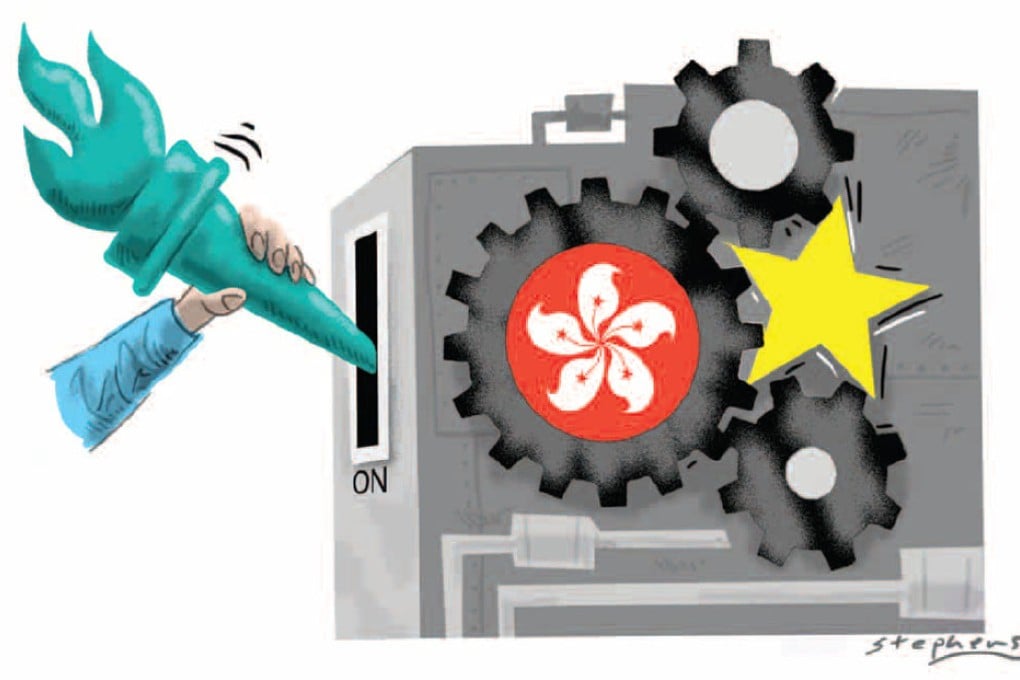World is watching the outcome of Hong Kong's democracy fight
Anson Chan says whether or not Hong Kong can maintain its freedoms and achieve genuine democracy is a matter of international concern - and a test of Beijing's sincerity under Basic Law

When Martin Lee and I decided to undertake our recent trip to the United States and Canada in response to invitations from the Asia Society and the Asia Pacific Foundation, we knew to expect a barrage of criticism from the central government authorities and pro-Beijing forces in Hong Kong. It is nevertheless dispiriting that, yet again, Chinese state media are focused more on shooting the messengers than listening to the message.
Standing up for the promises in the Sino-British Joint Declaration of "Hong Kong people ruling Hong Kong with a high degree of autonomy" does not mean we are standing against China. On the contrary, we made this trip because we both still feel passionately that "one country, two systems" - Deng Xiaoping's inspired concept for reuniting Hong Kong with the motherland - is a unique form of governance that must be cherished and safeguarded at all costs. Being proud and patriotic Chinese does not mean that Hong Kong people must resign themselves to a creeping erosion of their core values and way of life so fundamentally distinct from those of the mainland.
The maintenance of "one country, two systems" and the achievement of genuine democracy in Hong Kong are not simply matters for China. The Joint Declaration is an internationally binding treaty, lodged with the United Nations, for which the United Kingdom and China solicited the widest possible international support.
While it is primarily the responsibility of the two signatories to ensure that its terms are strictly observed, it is also in the wider interests of the international community that Hong Kong's special qualities and role as a bridge between the mainland and the world are preserved.
The United States and Canada, in particular, have enormous stakes in the special administrative region. Both have large numbers of their nationals residents here - more than 300,000 in the case of Canada - as well as substantial financial investments, trade and commercial interests, educational, cultural and family ties. Their close bonds with Hong Kong are founded on shared values: the rule of law, clean and accountable government, human rights, a level playing field for business, and the maintenance of key freedoms of assembly, religion and of the press.
During a packed schedule of appointments in North America we met senior government officials and politicians in Washington and Ottawa, briefed the editorial boards of leading newspapers, met with key think tanks and participated in stimulating exchanges with knowledgeable audiences at public seminars in New York, Washington, Toronto and Vancouver. Many we spoke to expressed deep shock at recent violent attacks on journalists and concern at other threats to press freedom as evidenced by abrupt sackings of high-profile editors and commentators and pressure on businesses to withdraw advertising from independent media.